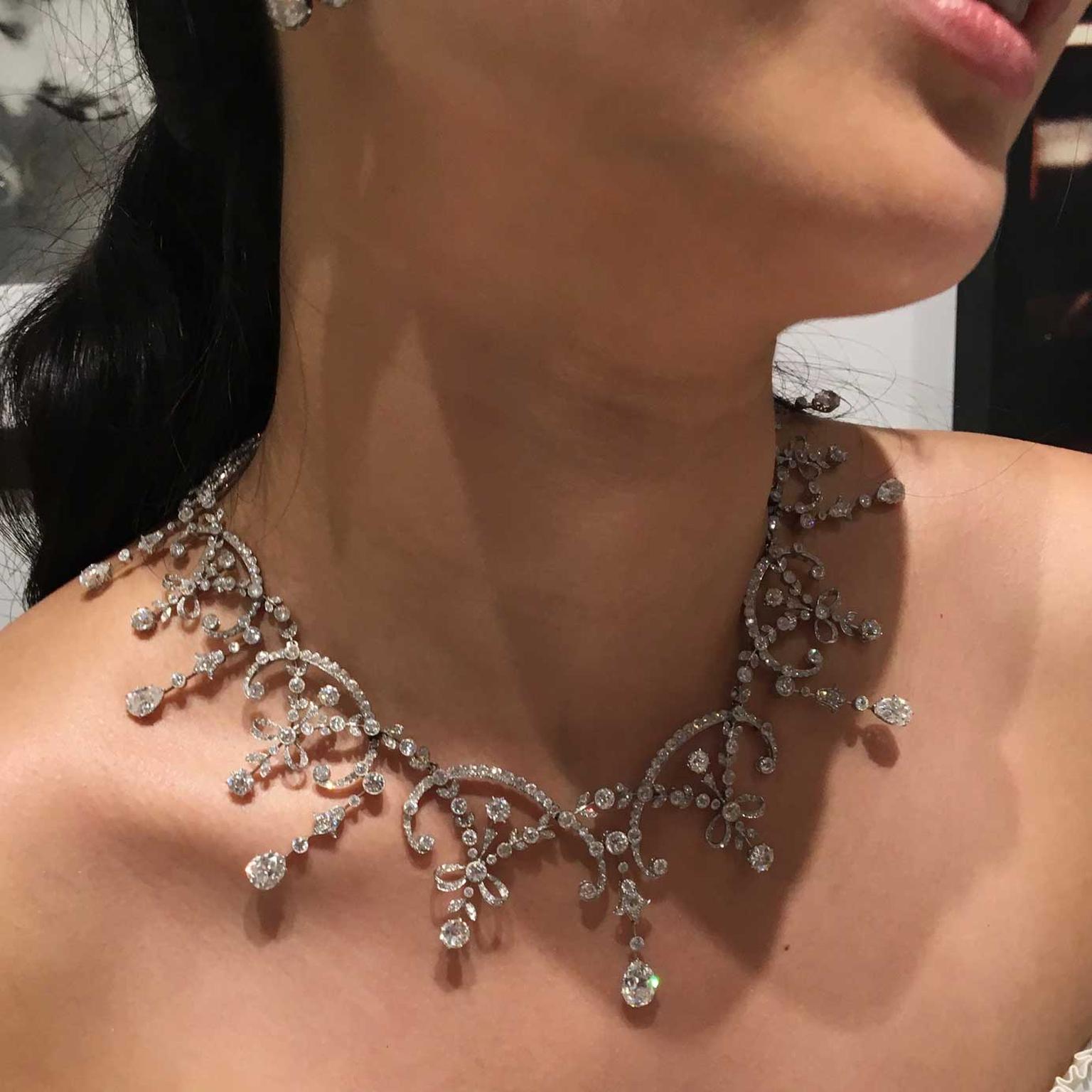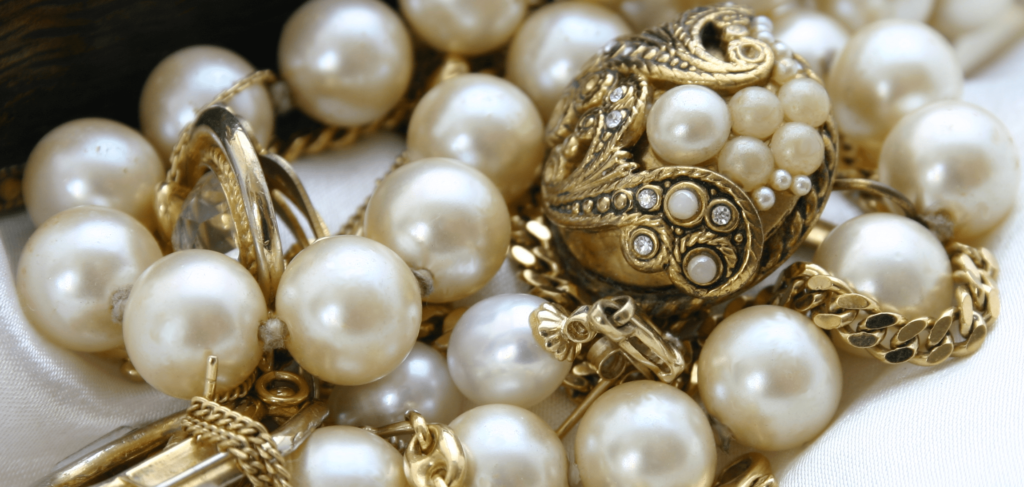The Interesting World of Antique Precious Jewelry: Looking Into Its Several Groups and Features
Antique fashion jewelry represents a captivating intersection of virtuosity and history, enveloping the essence of different eras through its intricate styles and products. Each classification, from the charming Victorian items to the cutting-edge Art Deco developments, reveals not only aesthetic choices yet additionally social narratives of the moments. Recognizing the differentiating attributes of these items, together with their noteworthy products and gems, opens up a window into the past that is both informing and interesting. antique jewelry. As we discover these facets better, one may wonder what concealed tales lie within the elegant workmanship of each antique jewel.
Historic Ages of Antique Fashion Jewelry
Antique jewelry is elaborately connected to the historic durations in which it was created, showing the artistic trends, social values, and technical developments of those times. The evolution of jewelry design can be mapped with numerous famous ages, each marked by unique styles and products.
The Georgian era (1714-1837) is defined by complex layouts and making use of natural themes, commonly incorporating gems such as garnets and rubies. antique jewelry. Following this, the Victorian duration (1837-1901) saw the introduction of sentimental fashion jewelry, with layouts that frequently shared personal significances, such as lockets and grieving pieces
The Edwardian age (1901-1910) accepted beauty, utilizing platinum and fragile lacework job, while Art Nouveau (1890-1910) concentrated on organic forms and the usage of enamel, showing the influence of nature.
The Art Deco duration (1920s-1930s) presented geometric shapes and bold colors, showcasing innovations in craftsmanship and products. Each of these eras not just highlights the imaginative technology of its time yet likewise acts as a reflection of the social and social shifts that influenced the globe of fashion jewelry. Recognizing these historic contexts improves the recognition of antique fashion jewelry today.
Trick Attributes to Identify
When evaluating antique precious jewelry, a number of vital attributes can aid determine its age and credibility. The materials utilized are vital; items from different ages usually feature particular metals and gems. Victorian precious jewelry regularly includes gold, while Art Deco items might use platinum and lively tinted rocks.
Following, craftsmanship is a significant sign. Handcrafted things, common in earlier durations, show special imperfections and information that mass-produced pieces do not have. antique jewelry austin. Examining the setup and stone placement can expose indicators of handwork, such as irregular prongs or varying rock forms
Additionally, trademarks and stamps play a crucial role in authentication. Numerous antique items birth marks indicating the steel's pureness and the manufacturer's origin, which can supply useful understandings right into the precious jewelry's background.
Last but not least, layout motifs usually show the age's aesthetic patterns. Art Nouveau is identified by streaming lines and all-natural types, while Retro fashion jewelry accepts vibrant, geometric shapes. By examining these essential features-- materials, craftsmanship, trademarks, and layout motifs-- enthusiasts and enthusiasts can much better ascertain the credibility and historic significance of antique jewelry pieces.
Popular Vintage Jewelry Groups
Numerous groups of antique fashion jewelry showcase the abundant history and varied designs that have progressed gradually. Among the most popular categories are Victorian, Art Nouveau, Edwardian, and Art Deco, each showing the visual trends and social influences of their corresponding durations.
Victorian precious jewelry, covering from 1837 to 1901, is characterized by luxuriant styles and emotional themes, typically including significance and complex workmanship. Art Nouveau, which grew in between 1890 and 1910, highlights organic types, flowing lines, and nature-inspired concepts, commonly featuring enameling and cutting-edge methods.

Additionally, there are details groups like Georgian and Retro jewelry, each with distinct characteristics and historical importance. Collection agencies and fanatics value these classifications not just for their elegance but also for the stories they inform about the eras in which they were developed.

Notable Products and Gemstones
Checking out significant materials and gemstones made use of in antique jewelry discloses the complex workmanship and visual values of various ages. Vintage fashion jewelry showcases a diverse selection of materials, each offering one-of-a-kind qualities and relevance. Silver and gold, widespread for their pliability and radiance, have been favored for centuries, typically decorated with complex engravings or lacework work.
Gemstones likewise play an essential role in defining the appeal of antique pieces. Diamonds, admired for their radiance, were frequently embeded in Victorian fashion jewelry, highlighting both luxury and condition. Tinted gemstones such as sapphires, emeralds, and rubies came visit homepage to be signs of romance and were typically incorporated into intricate styles throughout the Art Deco period.
Furthermore, less standard products like enamel and pearls arised, adding depth and structure to several styles. Enamel methods, specifically in the Renaissance, showcased vibrant shades and in-depth scenes, while pearls, wanted for their all-natural charm, were frequently used in both necklaces and jewelry.
The range of products and gems in antique jewelry not just reflects the artistic fads of the time yet likewise provides understanding into the social and social values of the periods in which these items were developed.
Taking Care Of Vintage Pieces
Proper care for antique fashion jewelry is important to protect its beauty and integrity with time. Each item narrates, frequently showing the workmanship of a specific era, and therefore calls for specialized focus.
To begin, it is critical to keep antique precious jewelry in a regulated atmosphere, away from straight sunlight and moisture. Regular cleaning is vital, but ought to be come close to with caution; prevent severe chemicals and abrasive materials.

Specialist examinations and maintenance can additionally be advantageous. A qualified jewelry expert can analyze for loose stones, damaged settings, or other issues, making see certain the longevity of these treasured products. By adhering to these care standards, antique precious jewelry can continue to be not only a cherished treasure yet additionally a magnificent representation of art and history.
Final Thought
The exploration of antique jewelry exposes a diverse landscape formed by historic periods, artistic activities, and unique workmanship. Appropriate care ensures the durability of these artifacts, allowing future generations to experience the charm and importance of antique precious jewelry.